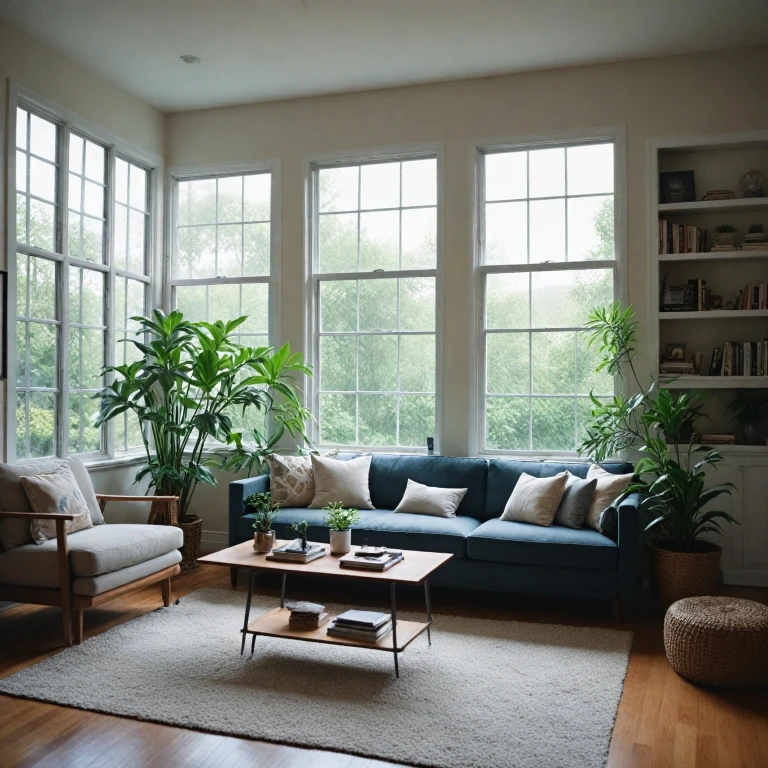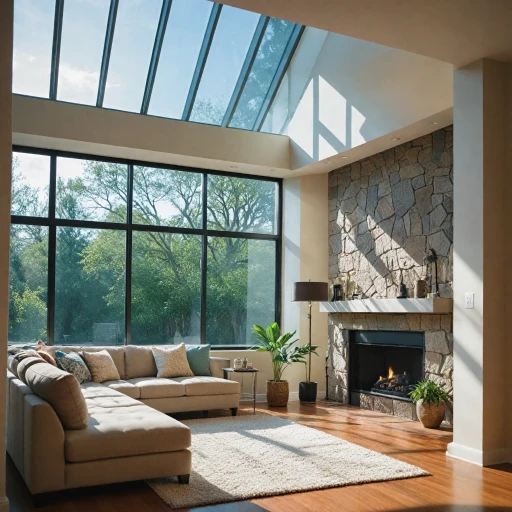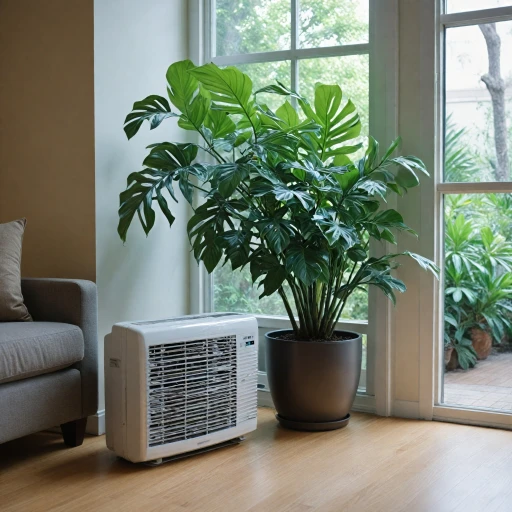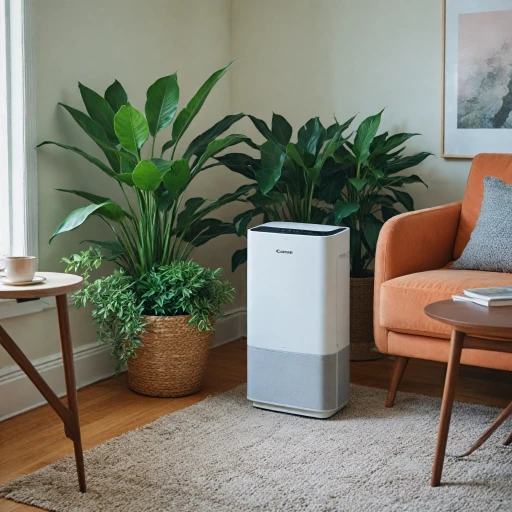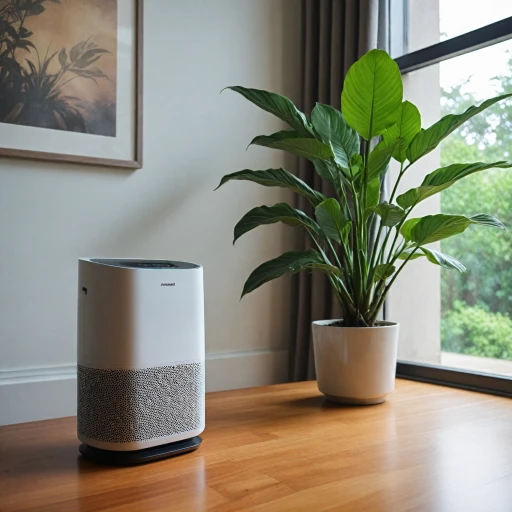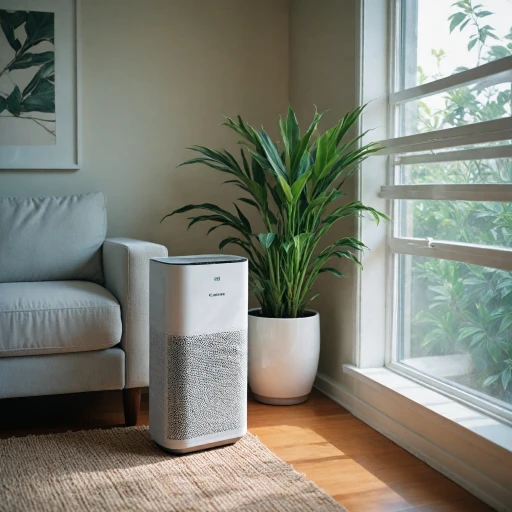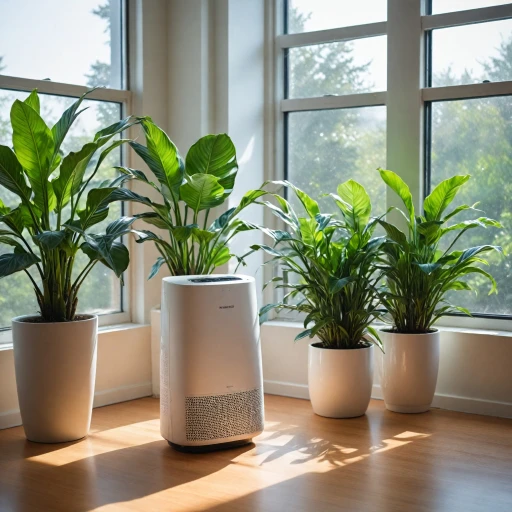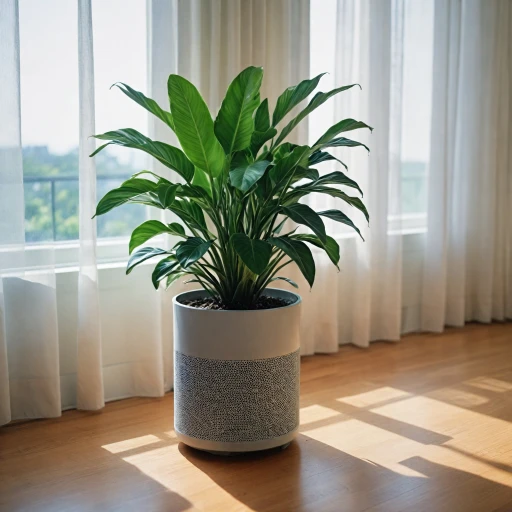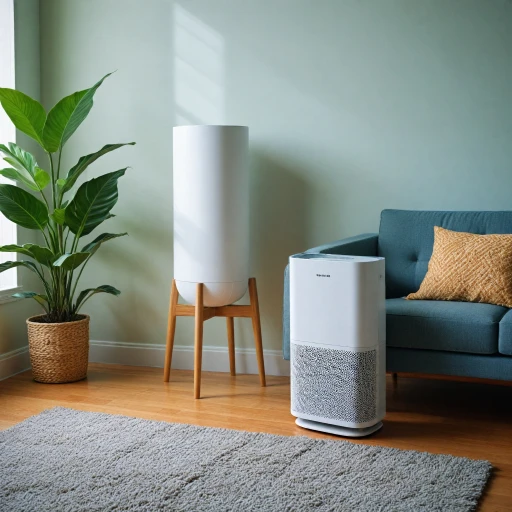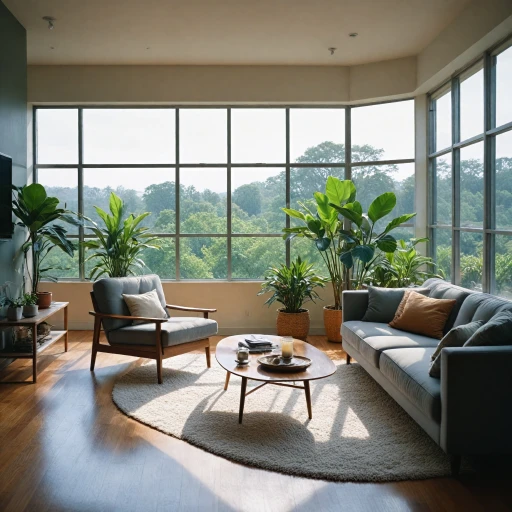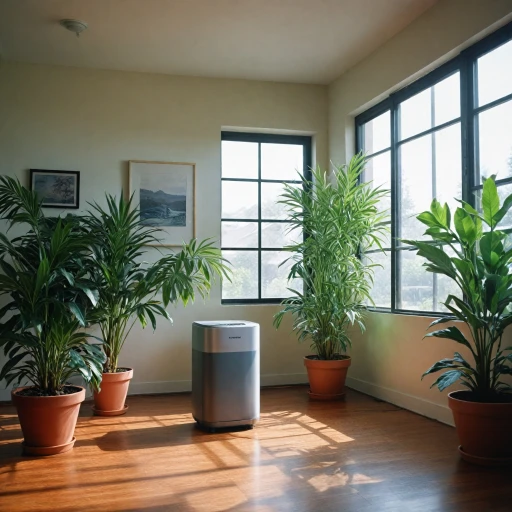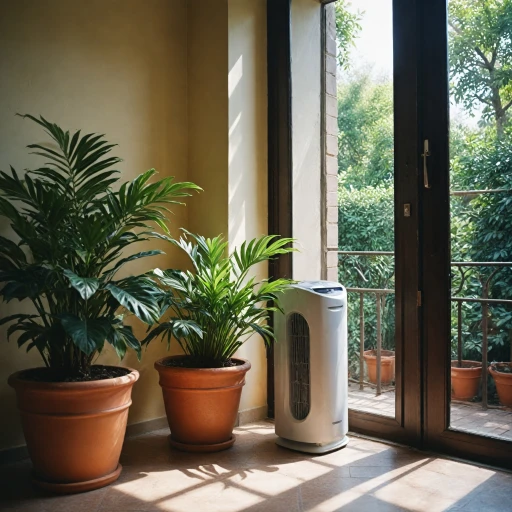Understanding HEPA Filtration
Navigating Through HEPA Filtration Systems
When diving into the realm of air purification, understanding HEPA filtration is pivotal. High-Efficiency Particulate Air, or HEPA, is a standard that measures the capability of filters to capture particles as small as 0.3 microns with 99.97% efficiency. These air purifiers effectively capture contaminants, improving your indoor air quality by filtering out dust, pollen, and other harmful particles. HEPA air purifiers play a significant role in enhancing air quality, whether implemented in a single room or as a whole house system. Investing in a whole house HEPA filtration ensures that every corner of your home benefits from clean air, transitioning seamlessly from one room to another as part of the overall HVAC system. This comprehensive coverage contributes to a healthier living environment. The filtration system doesn’t just stop at HEPA; it involves a multi-stage process where pre filters trap larger particles, protecting the integrity and efficiency of the primary HEPA filter. A true HEPA filter, specifically, excels in capturing ultra-fine particles, ensuring optimum purification across varying spaces within the house. Exploring the benefits of a 14-inch air cleaner, beyond just the basics of HEPA, reveals its enhanced ability to provide sustained performance and longevity. Understanding the enhanced filtration capability sheds light on why investing in these systems often reflects in better indoor air quality and overall purification efficiency. Price considerations often surface in these discussions, as the investment in HEPA filtration can vary. While the regular price for individual room air purifiers hovers around an accessible range, whole house systems might demand a higher upfront investment—yet they offer seamless integration within your HVAC system and broad filtration coverage. Sale prices on platforms like Amazon might provide cost benefits, making it easier to explore high-quality products without a steep initial cost. Understanding the core attributes and benefits tied to HEPA air filtration can greatly assist in making informed purchasing decisions. The clean air delivered by these systems underscores their value and necessity in promoting a healthier, more purified environment at home.Benefits of Whole House HEPA Filtration
Why Opt for a Whole House HEPA Solution?
When considering a whole house air purification system, HEPA filtration stands out as a top choice due to its extensive benefits. HEPA, or High Efficiency Particulate Air, works diligently to capture a majority of airborne particles, ensuring clean air throughout your living space.- Comprehensive Coverage: Unlike room-specific air purifiers, a whole house system integrates directly with your HVAC system. This ensures that every part of your home benefits from cleaner air, offering consistent air quality in each room without the need for multiple units.
- Exceptional Purification: HEPA filters are renowned for their ability to trap a minimum of 99.97% of particles as small as 0.3 microns. This includes common contaminants like dust, pollen, pet dander, and smoke particles, effectively improving indoor air quality.
- For a deeper understanding, explore more about the benefits of HEPA air purification in our thorough analysis of the Airdog Air Purifier.
- Health Benefits: With reduced airborne contaminants, HEPA-filtrated homes experience fewer allergy symptoms, less respiratory distress, and overall enhance the health of the household occupants.
- Seamless Integration: The system silently operates alongside your HVAC system without disrupting your daily activities, applying systematic purification throughout the year, as you manage different seasons.
- Long-term Savings: While the initial investment, or unit price, might be higher than individual air purifier units, the whole house system can lead to long-term savings. It reduces the need for multiple room purifiers, decreases the buy frequency of replacement filters, and can improve your HVAC system's efficiency, prolonging its lifespan and saving costs further down the line.
Installation Considerations
Assessing Your Home's Infrastructure and Needs
When considering the installation of a whole house HEPA filtration system, it's crucial to evaluate both your home’s existing infrastructure and your specific air purification needs. Many homes are equipped with an HVAC system, which can often accommodate a whole house HEPA filter. However, there are several factors to bear in mind:- Compatibility with HVAC Systems: Ensure that the HEPA filter or purifier system is compatible with your current HVAC unit. Some systems might require modifications or additional space.
- Professional Advice: Engaging professionals can offer insights into which HEPA filtration solutions are optimal for your system. The detailed initial assessment can prevent mismatches and inefficiencies.
Space and Integration
Space is another crucial consideration when integrating a HEPA system. Whole house filtration systems may require additional space, potentially affecting room layout and utility areas. It's wise to consider:- Placement: The physical installation location of the purification unit can impact performance. Proper placement ensures efficient whole house air flow and optimal filtering of particles and contaminants.
- Space Limitations: Evaluate if your home has the necessary space or requires potential adjustments. Small spaces might need bespoke solutions.
Cost and Installation Effort
The price of a HEPA air purification system and its installation can vary significantly. While some products might be available on the likes of Amazon at a sale price, others require a more considerable investment. Assess:- System Costs: Consider the regular price vs. a potential sale price of different units. Remember, investment in air quality typically yields long-term health benefits.
- Installation Expenses: Include potential installation costs when budgeting. Professional installation ensures proper setup, minimizing future maintenance concerns.
Cost and Efficiency
Balancing Cost with Efficiency and Performance
When it comes to investing in a whole house HEPA filtration system, understanding the cost and efficiency balances is crucial. These systems are often considered a substantial financial commitment compared to standard room air purifiers, yet they provide comprehensive air purification that can considerably enhance indoor air quality.
Initially, the unit price of a whole house HEPA system can be higher than purchasing multiple room-specific air purifiers. However, in the long term, these systems often provide better value, as they are designed to integrate with your existing HVAC system and operate more efficiently over time. The integration minimizes the need for multiple devices, thus offering a streamlined solution for clean air throughout your home.
While evaluating the cost, it's important to consider the ongoing expenses associated with replacements and upkeep. Regular maintenance, including the change of HEPA filters, is essential to maintain performance. It's worth noting that a true HEPA filter needs to be replaced periodically, typically every 12 to 18 months depending on usage and the specific model. The price of these replacement filters can vary, often reflecting their filtration capacity and quality. Some brands, like Blue Pure, may offer competitive prices for their filter replacements.
Additionally, sales and promotions, such as those found on platforms like Amazon, can make these systems more accessible at a reduced price, allowing you to achieve quality air purification without breaking the bank. Always compare prices across different sellers and time your purchase during sales events for the best deal.
Investing in a whole house HEPA system is not only about the initial price but also about the long-term benefits of maintaining high-quality indoor air. By improving air quality and reducing contaminants, these products contribute to a cleaner, healthier home environment which, for many, justifies the cost.
Maintenance and Upkeep
Ensuring Efficiency with Proper Maintenance
Maintenance is an essential part of ensuring that your whole house HEPA filtration system continues to function at its best. The effectiveness of air purification depends significantly on keeping the filters clean and replacing them according to the manufacturer's guidelines. Regular maintenance tasks include:- Checking the pre filter: The pre filter traps larger particles before they reach the HEPA filter. Regularly inspect and clean it to prevent blockages that reduce efficiency.
- Replacing the HEPA filter: Over time, the HEPA filter becomes saturated with fine particles. Check the recommended interval for changing the HEPA filter in your system to maintain high indoor air quality.
- Examining the HVAC system: Your whole house air purifier is part of the larger HVAC system. Ensure the system is serviced regularly to avoid any mechanical issues that could impact the air purifier.
- Monitoring air quality: Utilize air quality monitors to track the performance of your filtration system. This can alert you when additional maintenance may be required.
Comparing HEPA to Other Filtration Methods
Comparative Look at Filtration Options
When it comes to improving indoor air quality, choosing the right filtration system is crucial. Whole house HEPA filtration systems offer a range of benefits over other popular air purification methods, including room-specific units and basic HVAC system filters.
- HEPA vs Room Air Purifiers: While room air purifiers are designed for localized air purification, typically efficient for single rooms, whole house HEPA systems provide comprehensive coverage by integrating into the HVAC system. This ensures a more uniform air quality improvement across the entire house, rather than concentrating purification in a single area.
- HEPA vs Standard Filters: Regular HVAC filters are primarily designed to protect the system components rather than significantly improve air quality. In contrast, HEPA filters capture 99.97% of particles as small as 0.3 microns, effectively removing dust, pollen, and other contaminants, which standard filters might miss.
- Performance and Price Considerations: While whole house systems might have a higher upfront cost, this investment can lead to better long-term health benefits and may justify the initial unit price. Conversely, less expensive options like standard HVAC filters or single-room purifiers might incur ongoing costs for pre filters or replacement filters.
Moreover, the true HEPA filtration systems available on the market, such as the blue pure models, offer advanced air purification capabilities that significantly contribute to achieving clean air in your living spaces. It's essential to weigh the regular prices against potential sale prices or price sales available at platforms like Amazon, to ensure you're making an informed decision.
